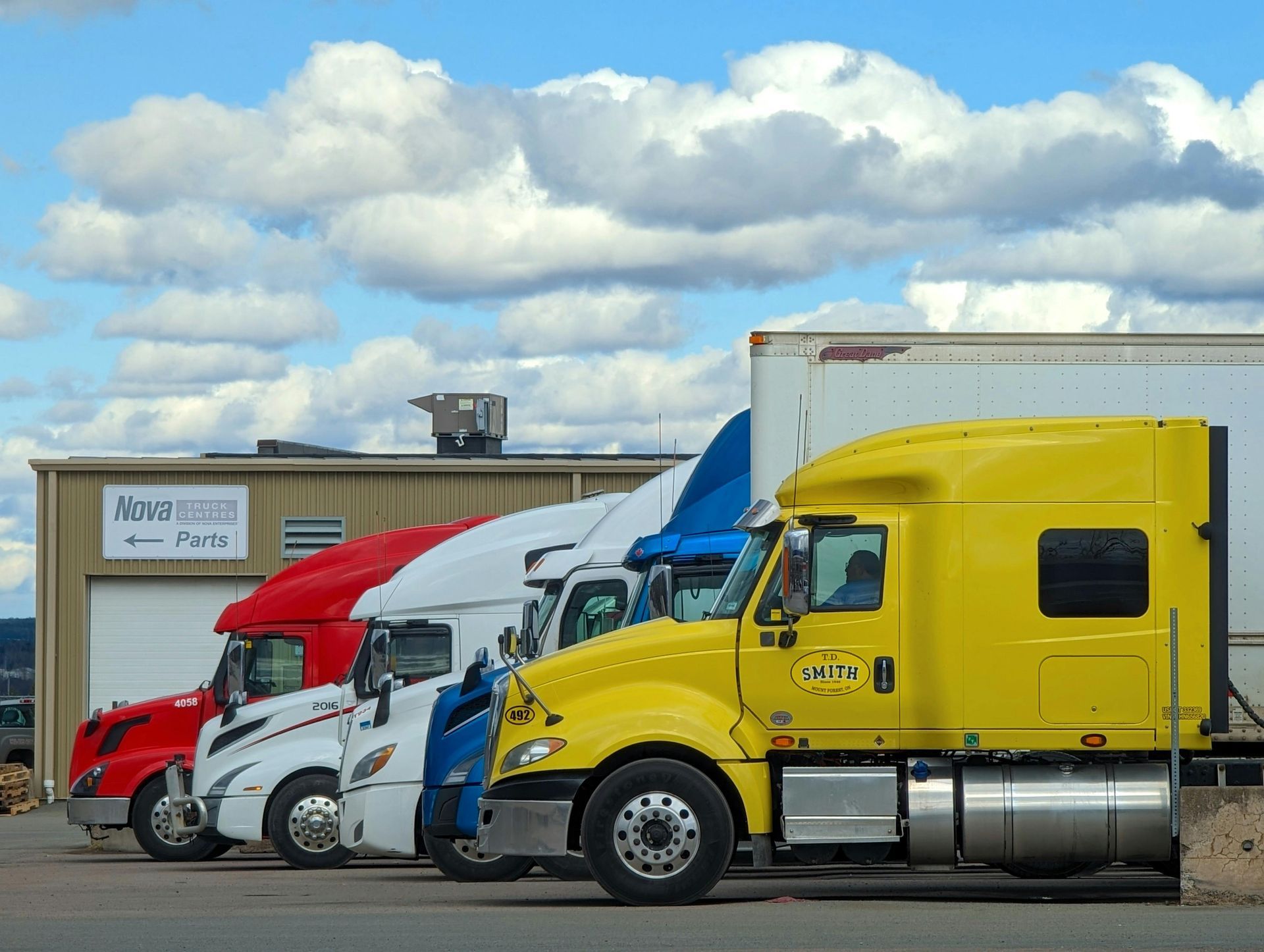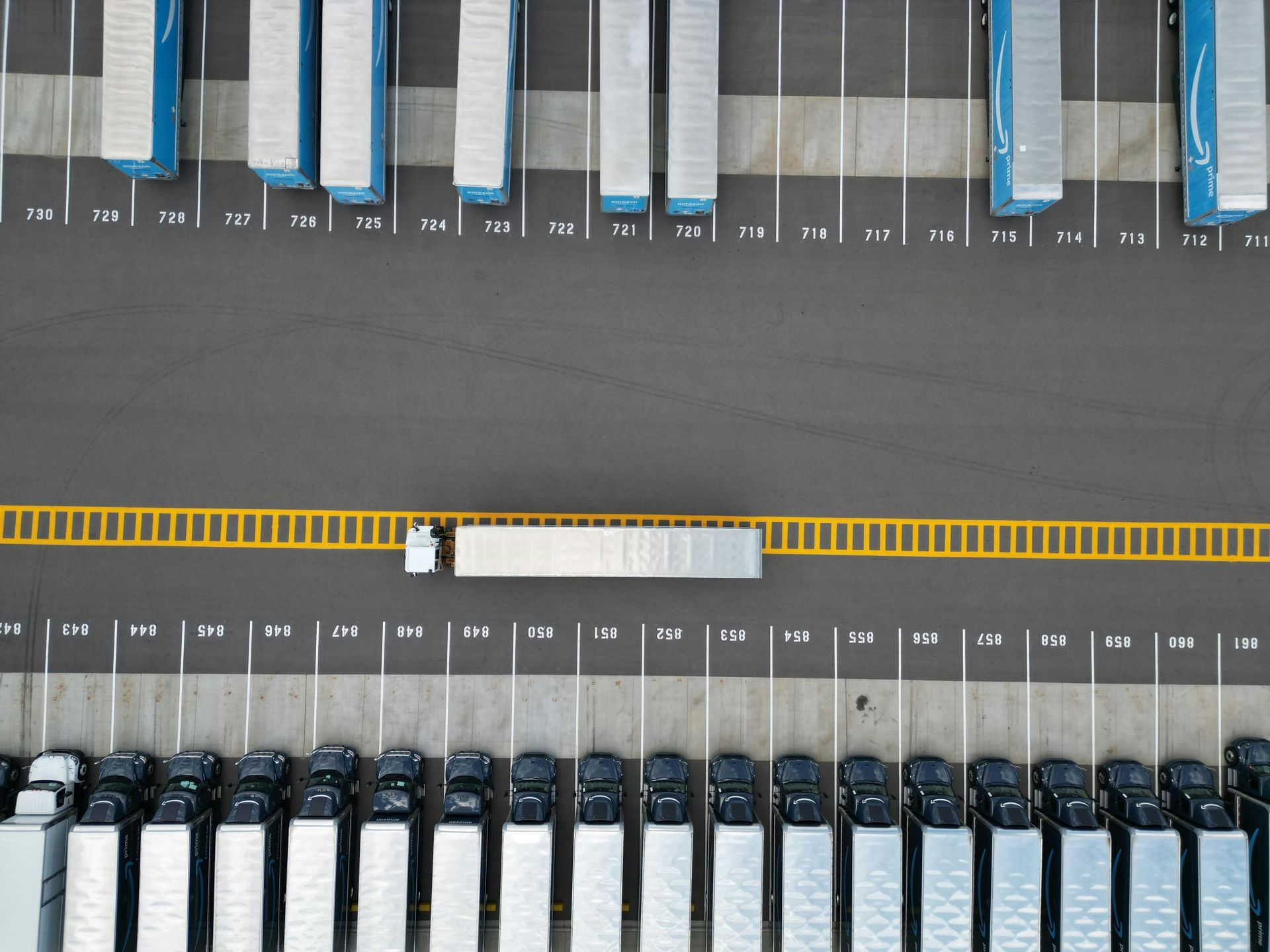How to Keep Your Books Clean on the Road: Bookkeeping Tips for Truckers

Let’s face it—being a truck driver means juggling a lot more than just routes and delivery schedules. Between fuel stops, maintenance, DOT inspections, and dispatch calls, who’s got time to deal with bookkeeping? But keeping your financial house in order isn’t just a “nice-to-have”—it’s a must-have if you want to save money on taxes, avoid trouble with the CRA, and grow your business. Good news: with the right habits and tools, bookkeeping can be quick, simple, and practically automatic.
Truckers Pro CPA is here to break it all down. This guide covers real-world, easy-to-follow tips on how to manage your books like a pro while living life on the road.
Why Bookkeeping Matters More Than You Think
Bookkeeping isn’t just about crunching numbers—it’s about knowing where your money’s going and staying in control. Whether you’re a company driver, owner-operator, or running a fleet, clean books can help you:
- Track expenses and cut unnecessary costs
- Get every deduction you’re entitled to (fuel, meals, repairs, etc.)
- Stay audit-ready with proper documentation
- Make better business decisions based on real data
- File taxes faster and cheaper
And here’s the kicker: poor bookkeeping can cost you thousands. Missed deductions, CRA penalties, and late filings are just the tip of the iceberg. That’s why staying on top of it—even just a little at a time—can make a big difference.
Start with the Right System
Before you think about tracking receipts in your glove box or stashing invoices under your seat (we’ve seen it all!), you need a system. Something simple, mobile-friendly, and easy to stick with.
Here are your best options:
1. Cloud-Based Accounting Software
Use tools like QuickBooks Online, Xero, or FreshBooks. These platforms are built for business owners on the go. They let you:
- Snap photos of receipts
- Sync bank transactions
- Track mileage and fuel
- Send invoices (if you haul for direct shippers)
- Categorize expenses instantly
Many of them offer mobile apps that are perfect for truckers. You don’t need to wait until you’re home—do it while you’re fueling up or taking your break.
2. Dedicated Trucker Bookkeeping Apps
Some apps are made specifically for truck drivers, like TruckBytes, Rigbooks, or KeepTruckin. These apps often include load tracking, profit/loss reports, and per diem logs.
3. Hire a Bookkeeper (But Keep the Records Yourself)
Don’t have time or interest? No problem. Outsource it. But—and this is key—you still need to keep solid records. That brings us to the next point.
Build Good Recordkeeping Habits
Technology is helpful, but your habits are what really make the difference. Set up a daily or weekly routine—even just 10 minutes—to review your books. Here’s what to focus on:
Save Every Receipt
Fuel, DEF, truck washes, repairs, meals, tolls—you name it. The CRA doesn’t care if it’s $5 or $500. If it’s deductible, you need proof. Use a scanner app like CamScanner or Genius Scan, or just snap a photo and upload it to your bookkeeping software.
Separate Business and Personal Finances
Have a separate business checking account and credit card. Mixing business and personal expenses creates a mess come tax time. It’s also a red flag if you ever get audited.
Track Mileage the Smart Way
Instead of scribbling odometer readings on a napkin, use apps like MileIQ or TripLog to automatically track your routes. CRA rules require a detailed log if you want to deduct mileage properly.
Record Income Right Away
Whether you’re hauling for a carrier or taking load board gigs, record payments when they hit your account. It helps you catch missing payments and gives your accountant cleaner books to work with.
The Big Bookkeeping Mistakes Truckers Make (And How to Avoid Them)
Even experienced drivers fall into common traps. Here are the big ones—and how to stay clear:
Waiting Until Year-End
Trying to catch up on 12 months of bookkeeping in February is a nightmare. Expenses get lost. Income gets misreported. It’s a fast track to missed deductions and stress. Instead, spend 10 minutes a week keeping up.
Not Backing Up Your Files
Phones get lost. Apps crash. If you’re only keeping digital records, make sure they’re backed up to the cloud—Google Drive, Dropbox, iCloud—anything secure.
No Paper Trail for Cash Expenses
If you pay cash, write it down and get a receipt. Otherwise, it’s not deductible.
Pro Tip: Know Your CRA Deduction Rules
Here’s where most truckers leave money on the table—not knowing what’s deductible. The CRA allows you to write off a lot, but you need to know the limits and keep proof. Common deductions include:
- Fuel and maintenance
- Meal per diem (based on travel rules)
- Lodging
- Cell phone (business use)
- Licensing fees
- Load board subscriptions
- Accountant and bookkeeping fees
If you're not sure about an expense, jot it down anyway. Better to have too much info than not enough.
Real-Life Example: The $8,000 Mistake
One of our clients, a long-haul driver based in Alberta, came to Truckers Pro CPA with a shoebox of receipts from the past year. Most of them were faded, and some key expenses were missing. We helped him recover what we could—but he missed out on over $8,000 in potential deductions due to lack of documentation and double entries.
The following year, we set him up with QuickBooks Online and trained him to snap receipts right after purchases. We created monthly profit reports and taught him to tag expenses. Not only did he save over $9,500 in taxes the next year, but he also felt in control for the first time in years.
Set Yourself Up for Success
Bookkeeping doesn’t need to be a burden. With a few digital tools, a good system, and the right support, you can stay organized, compliant, and profitable. Start by:
- Choosing a cloud app or hiring a CPA
- Committing to 10 minutes a week
- Keeping all receipts and logs backed up
- Staying on top of income and fuel costs
And if you want to go a step further, Truckers Pro CPA can handle your books while you focus on the road. We specialize in trucker taxes, deductions, CRA compliance, and monthly bookkeeping—so you don’t have to.
Popular Posts

Marcel Coviciu
Marcel began his career working in operation and management for a major tire manufacturer. Then he transitioned into trucking, running his own business for 15 years and ultimately working his way through accounting school. Fascinated with the way logistics and financial management impact the profitability of businesses, Marcel loves sharing his expertise with other truckers.















